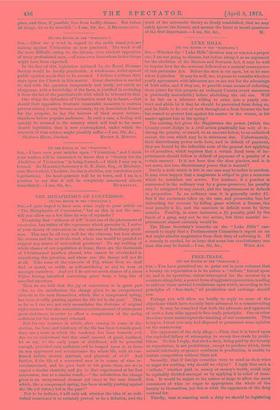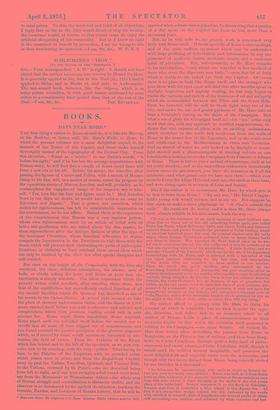FREE-TRADE.
go THE EDITOR OF THE "SPECTATOR."]
Six,—You have permitted me to point out in your columns that a bounty on exportation is in its nature a " tribute " forced upon. us, and in its operation, unless intercepted for the revenue by a countervailing duty, a potent form of aggressive protection, tending to subvert those natural foundations upon which, according to the principles of "free-trade," all production and exchange should. rest.
Perhaps you will allow me briefly to reply to some of the objections which have recently been advanced to a countervailing duty. It may be remarked that both the advocate and opponent of such a duty alike appeal to free-trade principles. One or other therefore must misinterpret the teaching of our economists. This. being so, I trust you may feel disposed to pronounce some opinion on the controversy.
The opponents of the duty allege :—First, that it is based upon the exploded fallacy of attempting to secure free-trade by prohi- bition. To this I reply, that such a duty, being paid by the bounty on exportation, is not prohibitory, except to produce which, from natural inferiority or greater costliness in production, is unable to sustain competition without State aid.
Secondly, that if foreign countries were to send us their wine or sugar for nothing, why should we object ? I reply that such a "tribute," whether paid in money or money's worth, could only be equitably divided amongst us by applying it in relief of taxa- tion. It would be unjust to the nation at large to allow the mere consumers of wine or sugar to appropriate the whole of the bounty to themselves, yet this is what the opponents of the duty contend for.
Thirdly, that in enacting such a duty we should be legislating to raise prices. To this, the most real and valid of all objections, I reply that so far as the duty would divert or stop the bounty, the consumer would, of course, to that extent cease to enjoy the artificial cheapening of his commodity. But as I know no right in the consumer to benefit by protection, I see no wrong to him in thus terminating its operation.—I am, Sir, &c., W. P. B. S.



































 Previous page
Previous page